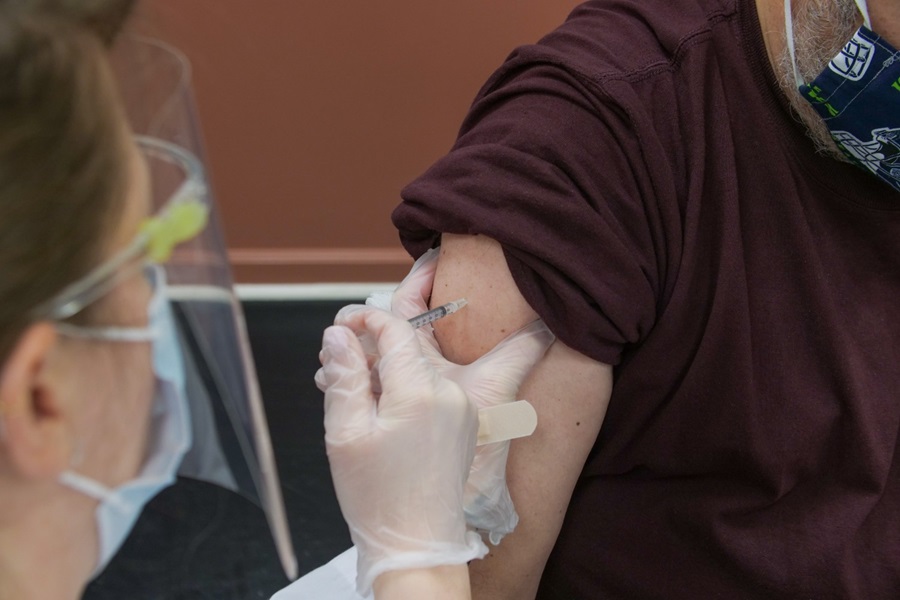Our latest multi-country study assessed public attitudes towards the COVID-19 vaccine rollout in Britain, France, Italy, Germany, the Netherlands, USA and India. It reveals that French and American citizens have the highest levels of vaccine hesitancy, with four in ten in France saying they wouldn’t have it, and one in four saying the same in the USA.
The research found that that:
- 37% of French citizens would definitely/probably not have a COVID-19 vaccine if one were made available to them, over twice the level in Great Britain (GB) (14%) and Italy (12%).
- 26% of people in the US and 23% of people in Germany say they definitely/probably would not have a vaccine.
- 82% of people in India, 80% of people in Italy, and 76% of people in both the Netherlands and GB say they would definitely/probably have a COVID-19 vaccine.
- 61% of citizens in Britain are very/somewhat satisfied with their government’s organization of the vaccination campaign, compared to 44% in Germany and only 31% in France.
- 44% of people in India consider their government to be a reliable source of information on vaccines, compared to 30% in the Netherlands and in Britain. Just 11% of US citizens and 13% of French citizens say the same thing.
The study is one of the first to assess public opinion since the mass vaccination campaigns seen at the national level, and the scale of the communications challenge facing governments hoping to improve vaccine acceptance is revealed in the research. Vaccine hesitancy remains for large minorities in France, Germany and the US, where citizens can be twice or three times as likely to trust their family doctor as they are their government
The study also found that:
- Men are more likely to have a vaccine – on average, 74% definitely/probably would be vaccinated compared to 67% of women across all countries.
- On average, “health authorities in my country” (41%) and “my family doctor” (39%) are considered the most reliable sources of information on the COVID-19 vaccine across all seven markets.
- 26% of Indians cited social media as a reliable source of vaccine information, compared to only 5% in Germany and 4% in Italy and the Netherlands.
- Safety concerns and lack of evidence about safety is cited as the most significant factor in vaccine hesitancy across all markets.
Methodological information
More information on the study can be found here. A total of 7,133 interviews were conducted online among adults living in India, Italy, the Netherlands, Germany, Great Britain and the United States of America between 13 – 26 January 2021. Using Kantar’s LifePoints research panel, only accessible through the Kantar Profiles Network, all interviews were conducted as online self-completion and collected based on local census distributions.

